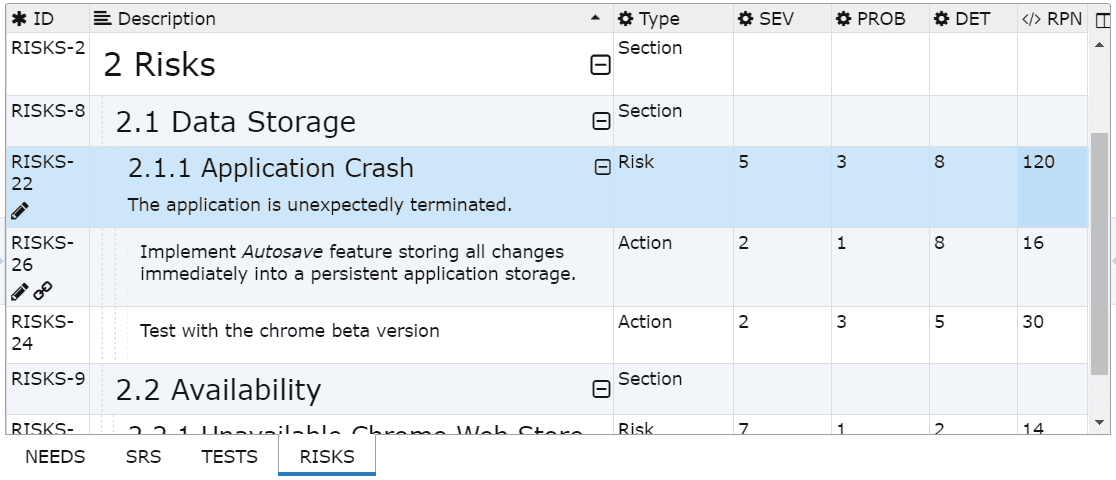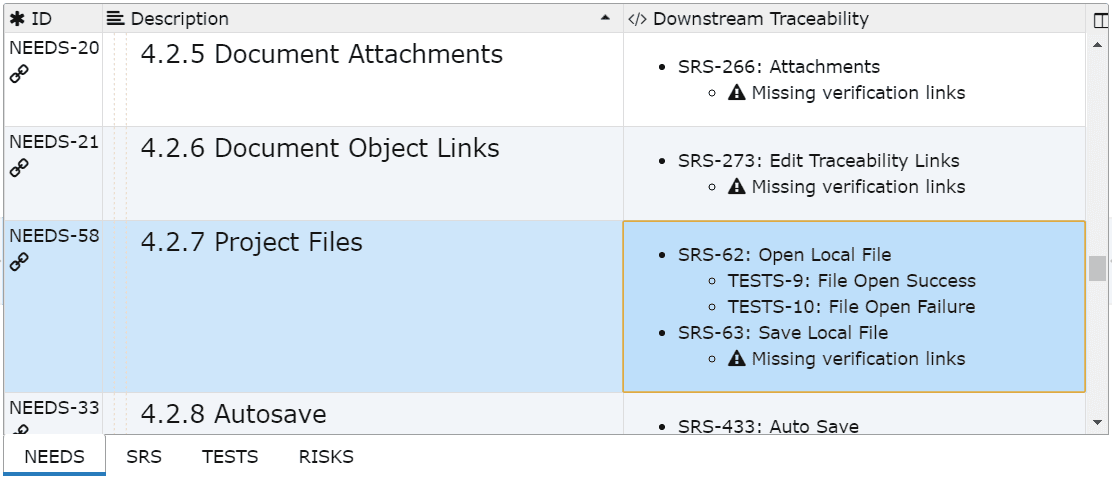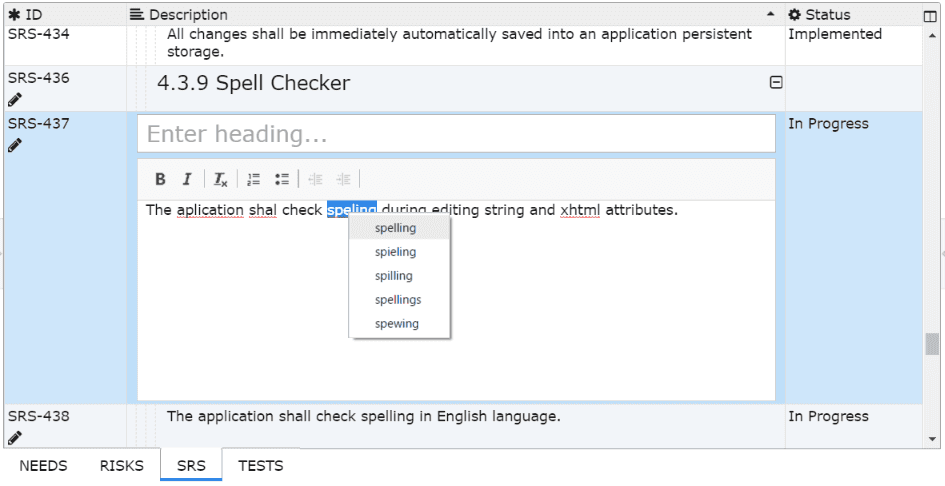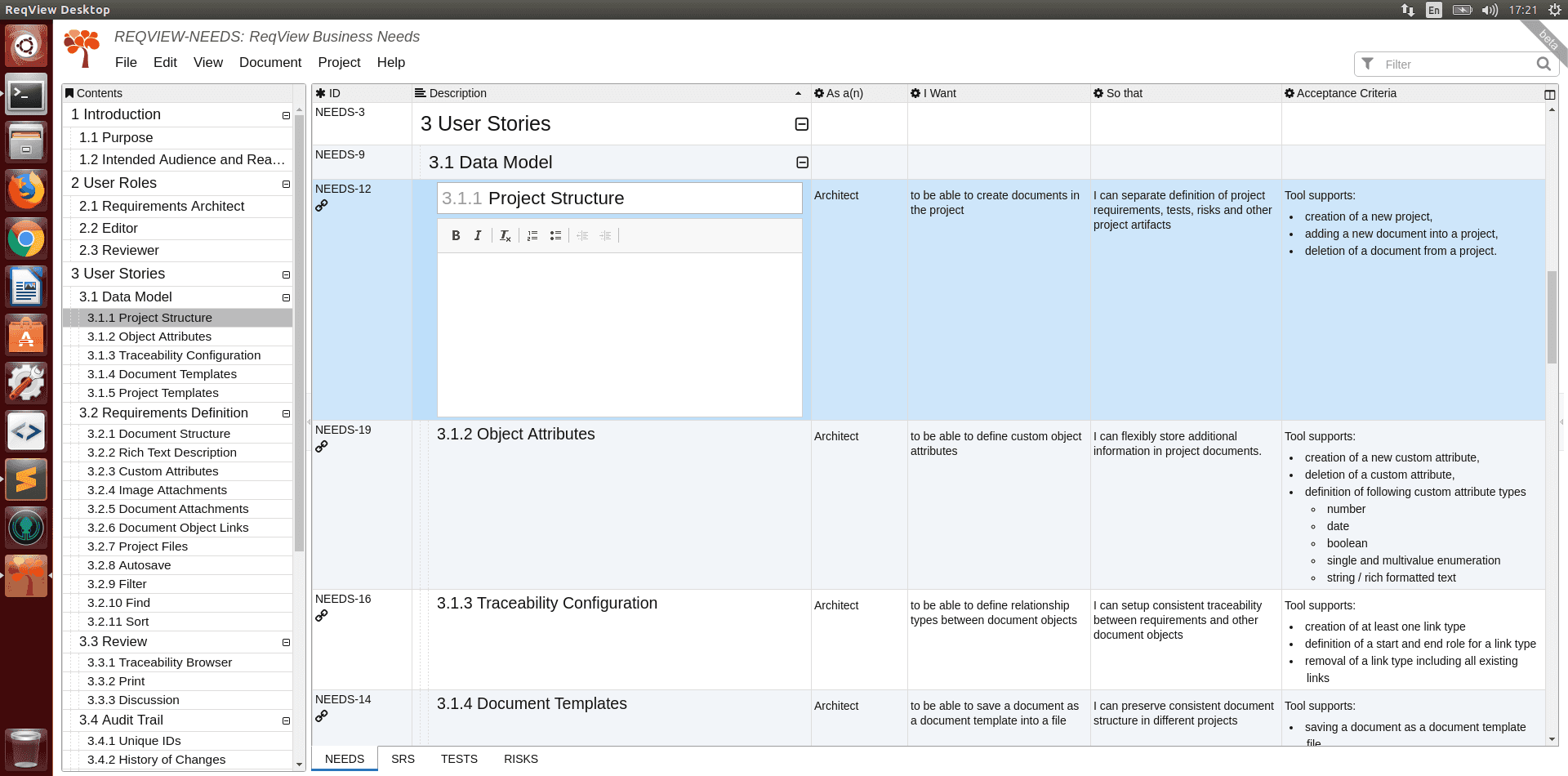ReqView 2.3 — Native Linux Application
We have released ReqView 2.3.0 which is now also available as a native application for Linux. It introduces Calculated Columns, Traceability Columns, English Spell Checker and other exciting features.
Calculated Columns
You can add a template column displaying live dynamic content directly in the application UI. For instance, you can add a column calculating the risk priority number (RPN):

Traceability Columns
The template column can also display list of linked objects across multiple traceability levels including attributes of linked objects.
For instance, you can add a column giving you end-to-end traceability view from the top level user stories (NEEDS) via requirements (SRS) down to validation records (TESTS):

Export CLI
You can export custom reports from a project without user interaction using simple Command Line Interface (CLI). This will allow you to track easier issues in your custom export templates and automate generation of the latest HTML documentation.
Usage:
$ reqview export <options>
Export Options: --project, -p Exported project file or folder --doc, -d ID of the exported document --template, -t Export template file --output, -o Output directoryExample:
$ reqview export -p reqview_demo.reqw -d NEEDS -t export/templates/HTMLReportTemplate.html -o export/outEnglish Spell Checker
You can enable now English spell checker in the native ReqView Windows and Linux application:

Linux Application
You can easily install ReqView Desktop LinuxApp on 64-bit Ubuntu 14.04+ LTS, Debian 8+ LTS, Mint 17+ LTS and other Linux distributions supporting the Debian package management tools:

Update Traceability Links from CSV
You can update traceability links of multiple document objects from CSV. In Excel create a CSV file with id column storing document object ID and a column per each updated traceability link type storing list of link target objects, e.g. satisfaction column. Then import the CSV by File > Import > CSV File > Update Document.